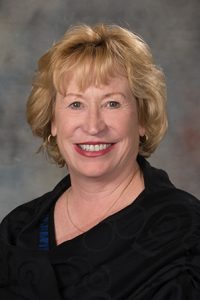Proposal to decouple from federal tax change debated
Lawmakers debated a proposal Aug. 6 to decouple Nebraska’s tax code from a federal change made in response to the coronavirus pandemic.
Elkhorn Sen. Lou Ann Linehan, sponsor of LB1074, said the bill would make several technical corrections to state tax law requested by the state Department of Revenue.
Sen. Sue Crawford of Bellevue introduced an amendment on general file that would decouple Nebraska’s tax code from a provision in the Coronavirus Aid, Relief and Economic Security Act passed by Congress in March. Because Nebraska conforms to federal tax law on a rolling basis, it automatically incorporates changes made at the federal level.
The provision in question, which temporarily removes an excess business loss limitation for passthrough entities, would reduce state income tax revenue by approximately $82 million this year, Crawford said.
She said the proposal is a pared-down version of another amendment introduced by Albion Sen. Tom Briese, which would have decoupled state tax code from several other CARES Act provisions.
Crawford said that decoupling from the excess business loss provision would preserve state tax revenue at a time when the Legislature is seeking to enact property tax reform.
Even if the amendment were adopted, she said, Nebraska passthrough businesses still would receive a federal tax cut about four times greater than the one from the state. Crawford said her amendment would not affect a separate CARES Act provision on net operating losses that is intended to provide businesses with the liquidity they need to survive the economic slowdown caused by the pandemic.
Sen. Mike Groene of North Platte supported the amendment, saying that Nebraska’s tax code already favors the businesses—S corporations and LLCs—that would benefit from the federal change.
He said the Legislature should decouple from the provision so that it has enough revenue to pay for the business tax incentive and property tax relief measures contained in LB1107, which lawmakers advanced to select file Aug. 5.
“This is not a … tax increase,” Groene said. “This is good tax policy to decouple us from this … giveaway.”
Briese opposed the amendment. He earlier had withdrawn his own amendment, which he said was introduced to ensure that the state had enough tax revenue to fund a major property tax relief proposal.
That proposal, now embodied in LB1107, “sets out a sustainable path forward for funding property tax reform,” Briese said.
Linehan also opposed Crawford’s amendment, saying that passthrough businesses would have filed their taxes in July under current law and would have to refile if the change were enacted.
“If you send somebody a letter that says ‘you owe taxes that [you] didn’t owe two months ago,’ that is a tax increase,” she said. “Nobody is going to see it any differently.”
Also in opposition was Sen. Robert Clements of Elmwood. He said the CARES Act tax cuts are meant to give businesses “breathing room” to help pay operating expenses during the economic crisis and that the act’s effect on state tax revenue had been accounted for in the budget.
After several hours of general file debate, the Legislature adjourned without voting on Crawford’s amendment or the bill. Per a practice implemented by Speaker Jim Scheer, the sponsor of a bill that is facing a potential filibuster must demonstrate sufficient support for a cloture motion before the measure will be scheduled for additional debate.

